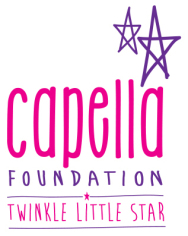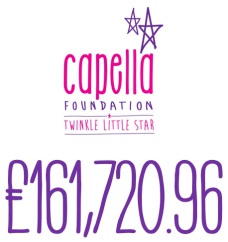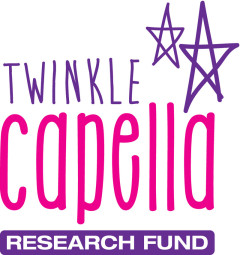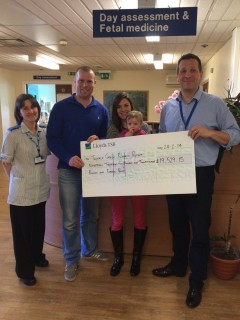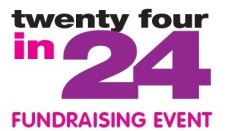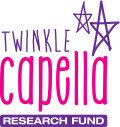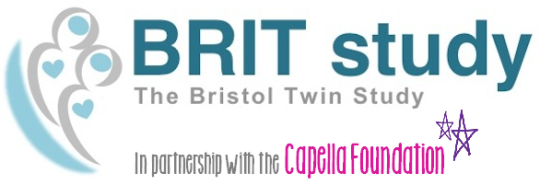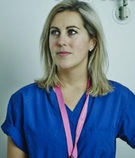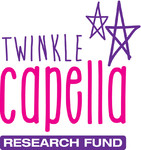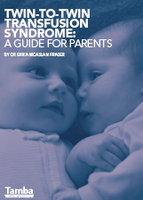fundraising that will make a difference...
Twinkle Capella Research Fund...
When the Capella Foundation was born in February 2013, we had a main goal; to fund pioneering medical research. We wanted to enable new research to be carried out that would help increase the understanding of specific medical complications during pregnancy.
In partnership with St Michaels Hospital, Bristol University, Oxford University and 'The Mother and Baby Trust', the Capella Foundation are enabling new research studies to become a reality. This is thanks to all the support and fundraising efforts, plus the generosity of many people that have supported the foundation and what we are trying to achieve.
Since breaking through our original fundraising target of £50,000, we are at the stage where the first research study underway - The BRIT Study. We are so incredibly excited about the opportunity this research gives the special medical teams to understand more, and ultimately ensure there are more positive outcomes in the future for others...
Introducing the 'BRIT study'
funded by the Capella Foundation
The BRIT Study is the first research study funded by the Capella Foundation. In August 2015 Dr. Sarah Newell will begin a 2 year full time MD that focuses on Twin to Twin Transfusion Syndrome - the medical complication at the heart of the Capella Foundation.
The BRIT study will recruit all mothers with monochorionic twins at St Michael’s Hospital in Bristol over a 2 year period. St Michael’s houses the Regional Fetal Medicine Unit where complex pregnancies are cared for.
Monochorionic twins are identical twins with a shared placenta. The shared circulation can lead to clinical problems in utero – the most significant of which is twin to twin transfusion syndrome (TTTS). In TTTS there is a gradual passage of blood from one twin to the other. The effects of this build with time placing increasing strain on the babies’ hearts, brains, kidneys and other vital organs. If left untreated most pregnancies will end in miscarriage. The treatment of choice is to perform keyhole laser surgery in the womb – although sadly this is not without risk as currently both babies survive in only half of the cases treated.
The BRIT study aims to recruit every mother with monochorionic twins at St Michael’s Hospital over a 2 year period. Careful and detailed ultrasound assessment will be made on each twin at every visit from 11-14 weeks, and fortnightly thereafter for the remainder of the pregnancy. In addition there will be several novel and cutting edge additional studies performed:
1. 3D power Doppler USS - This will involve the 3D reconstruction of early placental development. It is hoped that this will improve our understanding of how the shared placenta develops. Importantly it may lead to improved detection and treatment for TTTS.
2. Cardiac study - The hearts of both babies in monochorionic twins can be placed under enormous strain especially when TTTS develops. This arm of the study aims to explore novel imaging techniques to identify impending cardiac compromise, both as a tool to predict the development of TTTS, but also to monitor the recovery from TTTS following laser surgery.
3. MRI - The complex development of the fetal brain remains poorly understood, and sadly many babies from monochorionic twin pregnancies will suffer a developmental brain injury – this is thought to be secondary to changes in the blood flow between the twins. This area of the study will look at the functional development of both twins’ brains using a state of the art MRI scanner based at St Michael’s Hospital.
4. Cord blood metabolomics - Metabolomics is the systematic study of the unique chemical fingerprints that specific cellular processes leave behind. This area of the study will analyse the effects of the shared blood flow on fetal development.
In Partnership with:
You can follow Twitter updates by Dr. Sarah Newell as she progresses with the BRIT Study
Above and Beyond Charity
Above and Beyond are a Bristol based registered charity, raising funds for projects involving Bristol City Centre Hospitals.
The projects Above and Beyond fund improve the hospital environment, support ground breaking research to deliver the treatments of tomorrow, provide specialist medical training and recognition for staff and state-of-the-art equipment.
Due to The Capella Foundation not being a registered charity, we utilise Above and Beyond as a giftaid registered fundraisng platform, with all Capella raised money being 'ringfenced' to fund the Capella Foundation 'Twinkle Capella Research Projects'.
The Capella Foundation, working in partnership with St Michaels hospital, Dr Mark Denbow and Dr Sarah Newell, identify medical research studies to undertake into specific pregnancy complications.
raising awareness
Pregnancy Complications
It is the aim of The Capella Foundation to help increase awareness of pregnancy complications that can occur.
Unfortunately, pregnancy complications can happen more than we would think, and often it is something which is not freely spoken about by those who are affected.
Through greater awareness about issues, and a platform for people to get involved to help raise money that will directly fund important research studies, we can help support ground breaking research to deliver diagnosis and treatments of tomorrow, so to help those in the future.
Twin to Twin Transfusion Syndrome
When we were diagnosed with TTTS, we knew we were in safe hands medically; the tough part however was the uncertainty and lack of understanding.
TTTS was something we didn't know much about, and on returning home on the day of diagnosis we realised we had more questions than answers.
The charity TAMBA (twin and multiple birth association) have developed information for those affected by TTTS, and have helped develop a support group for parents.
the capella foundation shall focus on ensuring that the information and support for parents affected by TTTS is more readily available; given out by hospitals at point of diagnosis.

